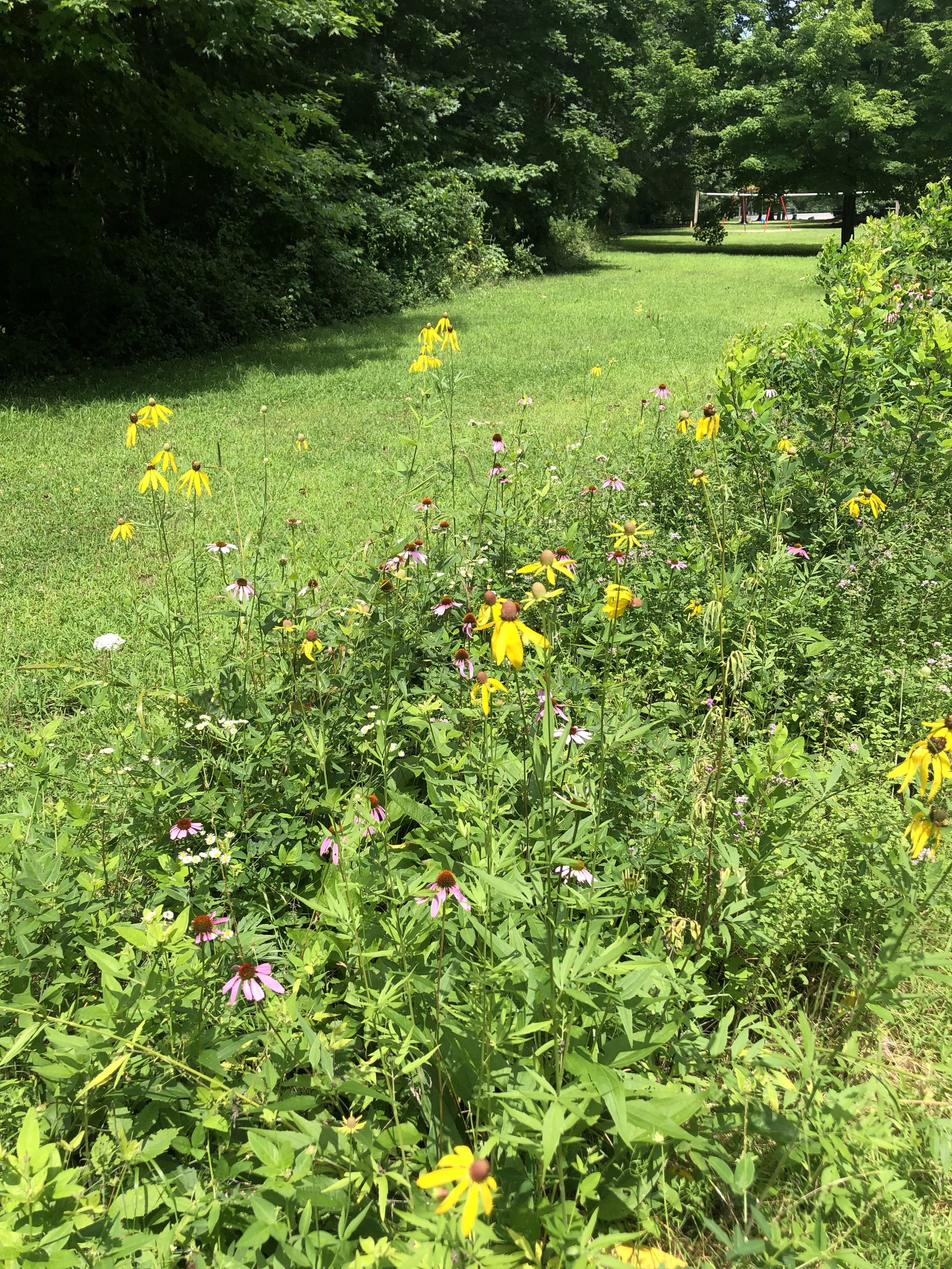
Why native plants?
Native plants are simply the plant species which have adapted and coexisted with your local area before any human intervention or disturbances. What this means is that native plants are more hardy to the environmental conditions unique to your area and generally need less maintenance and assistance compared to plant species which have been introduced from foreign areas by human activity.
The Native Plant Trend is growing across the Michiana region and the entire globe, with more people every year becoming inspired to leave a positive mark on their local ecosystems and community by planting natives in their landscaping.
Native Plants’ profound benefit to local ecosystems and their lessened need for painstaking regular maintenance are often top reasons why people choose native, but TAKE A LOOK BELOW TO EXPLORE ALL THE BENEFITS OF GOING NATIVE!
BENEFITS TO YOUR LANDSCAPING
Native Plants introduce a stunning array of diverse color and shapes to your yard. Since they are already adapted to your own unique climate and environment, they result in less time and money spent on tedious yard maintenance routines. As an added bonus to your yard’s scenery, native plants also attract more colorful and rare butterfly and bird species than popular non-native landscaping plants.
KEY BENEFITS:
Less maintenance, watering, and fertilization required
Higher numbers of butterflies and birds visiting your landscape (Monarch Butterflies and Hummingbirds, for example)
There’s different native plant species perfect for every unique part of your yard whether Sunny, Shady, Wet, Dry, Sandy, Soggy, and more
Foodscaping Value - For those interested in “Edible Landscaping”, countless native plants produce berries, seeds, fruits, nuts, leaves, and roots which are edible for humans.
benefits to the environment
You could argue that native plants aren’t just good for your local environment, they ARE your local environment. Plants are the backbone of the natural world, and they serve as the foundation of the food chain.
KEY BENEFITS:
High Value to Pollinators - Native plants are magnets to native pollinator species. Almost all the food we eat depends on pollination. Pollinator numbers are on the decline, and without them, Earth would face a total ecological collapse
Native plants support and sustain native wildlife
Erosion Control and Water Retention - Native plants growing in flood-risk areas grow robust root systems which keep soil from eroding and also soak up excess water that may otherwise cause runoff and flooding
Water Conservation - Planting natives results in less watering required
Increased Air Quality - Natives absorb and store carbon and filter air pollutants
Climate Change - Native plants result in less carbon being emitted due to their reduced need of mowing and lawn maintenance, in addition to removing carbon from the air as all plants do
benefits to hunting, fishing, and recreation
If you were pondering what the common benefits of native plants are, hunting was likely not one of the first subjects that came to your mind. When practiced responsibly and sustainably, hunting and fishing are enjoyable pastimes, valuable tools for conservation and stewardship, and also practical ways for people to live off the land rather than be reliant on the commercial food industry. Add camping, hiking, and other hobbies to the list, and millions of Americans each year enjoy outdoor recreational activities.
KEY BENEFITS:
Popular game animals prefer native plants for food and shelter, and will often avoid and ignore sections of land that are full of non-native plants which they are not familiar with
For fishing, native plants are beneficial because they prevent bank and sediment erosion, create more desirable habitats for fish species than invasive plants, and replace invasive aquatic weeds (like Eurasian milfoil) which hinder boat navigation and lower aquatic species diversity.
Camping and hiking in our national, state, and local parks is most enjoyable when your surroundings are natural and balanced ecosystems which depend on a strong foundational presence of native plants!

BENEFITS TO YOU!
Lastly, Native Plants can end up being an entire hobby by itself! Many people have been pulled down into the rabbit hole of researching the inexhaustible literature that exists on our diverse array of local plants and the unique ways that they interact with their environments and neighboring wildlife. There are even clubs and networking groups which have sprung up in almost every community centered around the cultivation and appreciation of native plants. Countless recipes also exist for foods and medicines which are derived from native plants, an art practiced by the native Americans that has almost been lost.
Who knows, maybe YOU will also have your curiosity captured by your local native plants.



